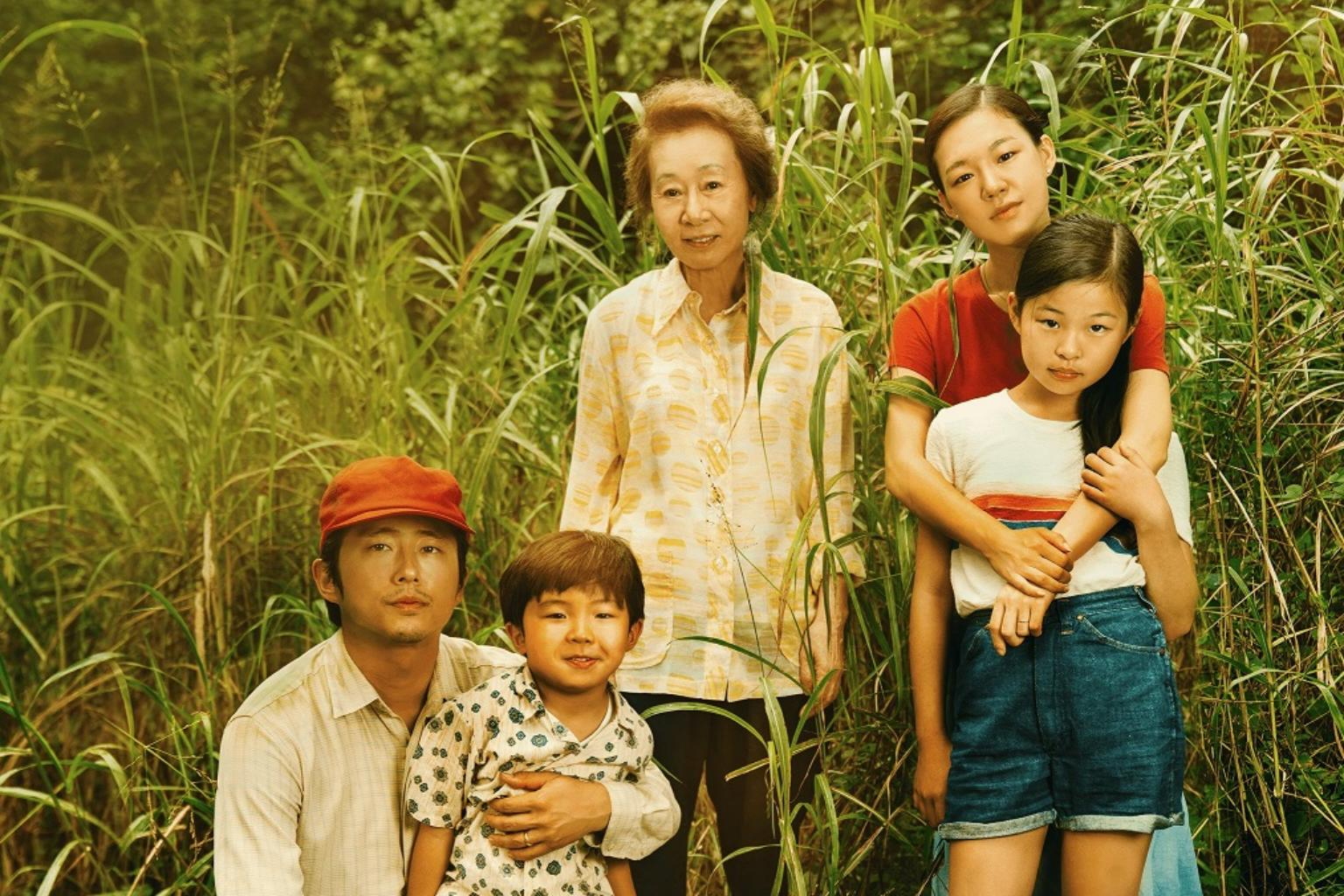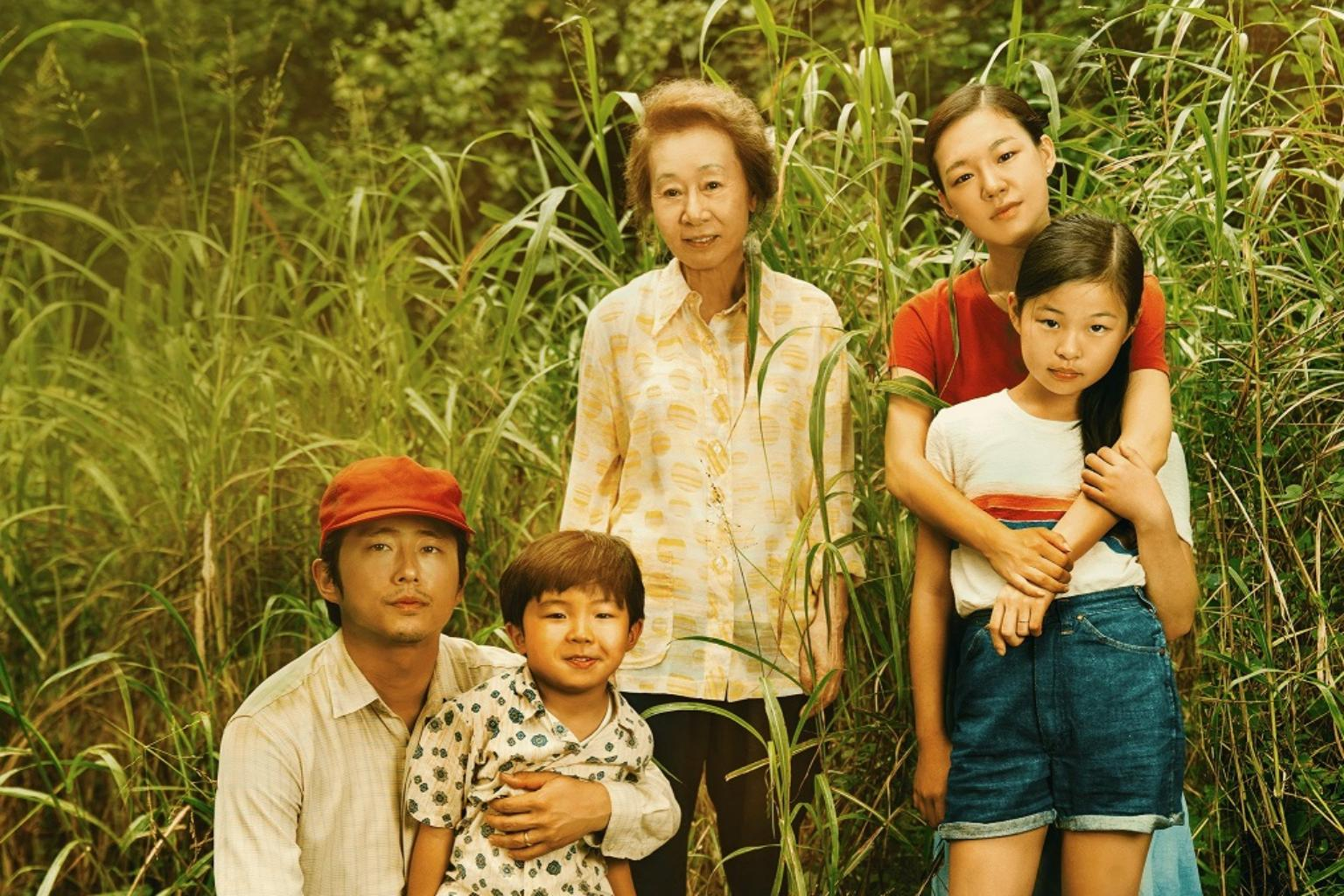Minari - Aspiration for a better lifeReleased in early 2021 and receiving nominations in 6 Oscar categories, it further enhanced the reputation of Asian cinema in general after the success ofParasite2019.
Set in the 1980s in Arkansas, known as the "Land of Opportunity" as an ideal place for immigrants to start new lives, Minari, written and directed by Lee Isaac Chung, evokes a sense of nostalgia through memories never experienced before, yet remaining authentic, gentle, and deeply moving.
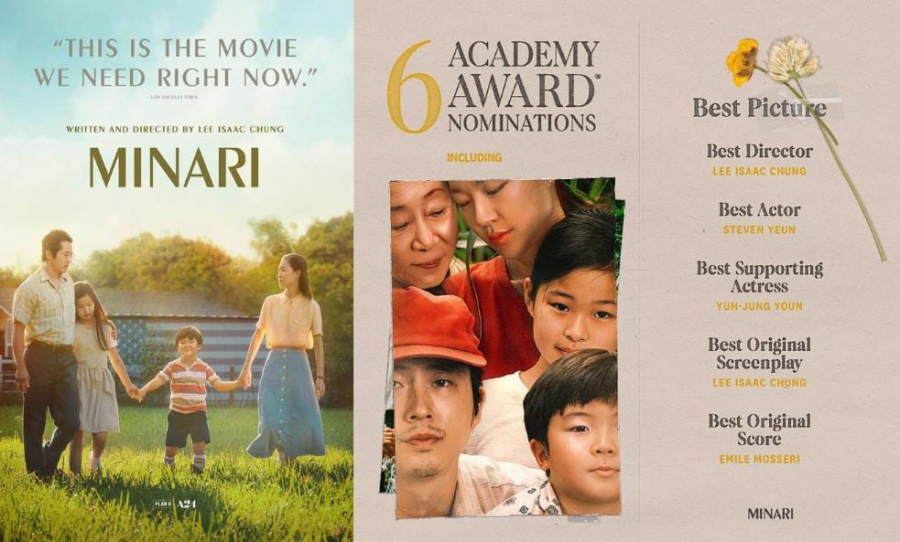
The film was nominated in 6 categories at the 2021 Academy Awards.
Simmering peacefully
Told with a gentle yet sharp tone, Minari quietly draws viewers into the mundane details of family life without manipulating the audience with any exaggerated dramatic formulas. More than simply "a glimpse into the life of immigrants in America," the film transcends mere storytelling.The character tries to adapt to the harsh environment.These are desires that have always waited to be fulfilled, lingering pains that cannot be put into words, profound lessons about family bonds, and a harsh reflection of contemporary society.
Director Lee Isaac Chung's autobiographical film focuses on minute details, fully portraying the life of a South Korean immigrant family in the 1980s – a life that was both arduous and yet peaceful and poetic. One might find themselves taking a few deep breaths while watching scenes with David –The boy has cardiovascular problems.Crossing a field, then suddenly stopping, then drooping. Or the soothing feeling under the image of minari (celery) sprouting with vitality. The film's scenes aren't grandiose, but they are concise and poetic; allowing us to feel it with our hearts, through genuine sincerity.
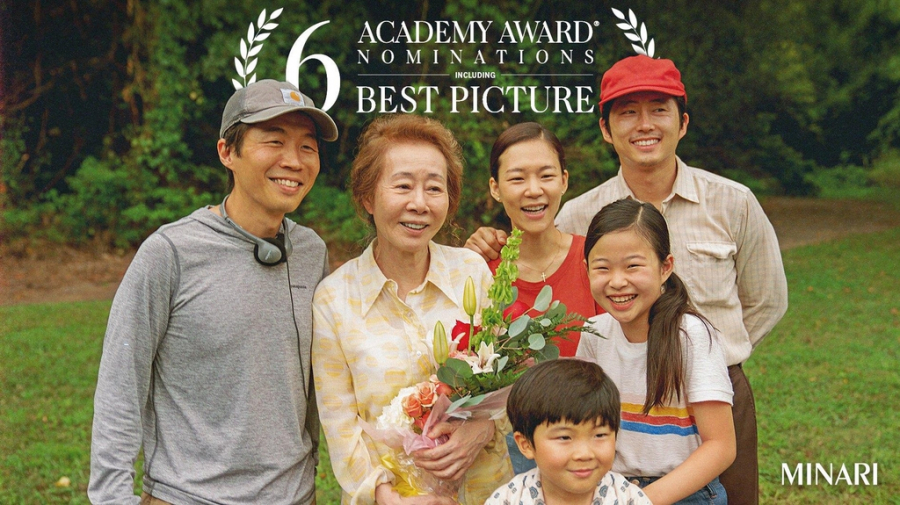
Director Lee Isaac Chung and the cast of Minari
Aspirations
At the beginning of the film, viewers easily recognize Jacob's eyes brimming with ambition for the "American Dream"; but after overcoming obstacles and difficulties, he loses the sparkle that once shone in his eyes. Because of his reckless and somewhat conservative nature, he throws himself into his dream, forgetting his family; leaving us to wonder whether what he is trying to build is for his loved ones or just for his own dreams.
Many people confuse their noble ideals with the excuse of arrogance and selfishness. And in the journey of building their ambitions, sometimes they forget the core reason that led them to begin.
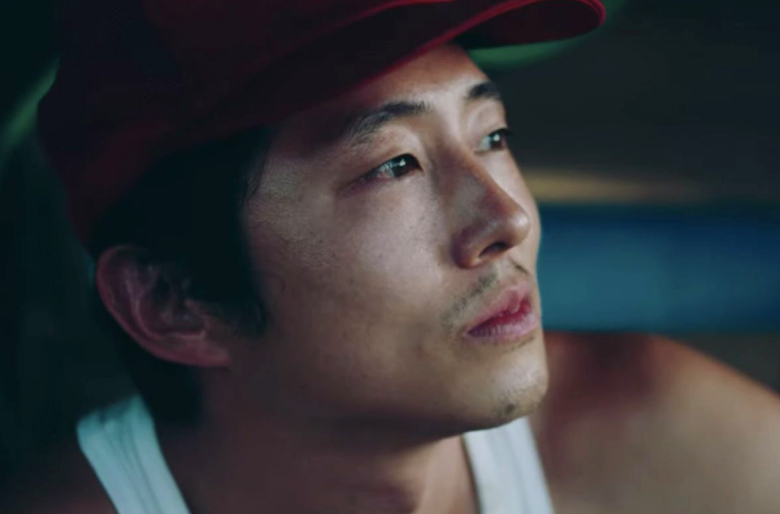
Having gone through many ups and downs on our journey to achieving our ambitions, we sometimes forget the values that led us to start.
Jacob was a wonderful man, an exemplary husband and father; but he didn't love his wife, Monica, as much as she loved him. Monica hadn't truly found her greatest dream in life; she packed her bags and went to America simply because she was swayed by the illusions of her newlywed husband, who painted a rosy picture of their future.American DreamShe sees her husband's ambitions as her own. This is a common mindset among many East Asian women: "If he wants to, I'll always be there to support him; let's do it together!" However, once they have children, raising and caring for them unintentionally becomes their greatest ambition and responsibility in life.
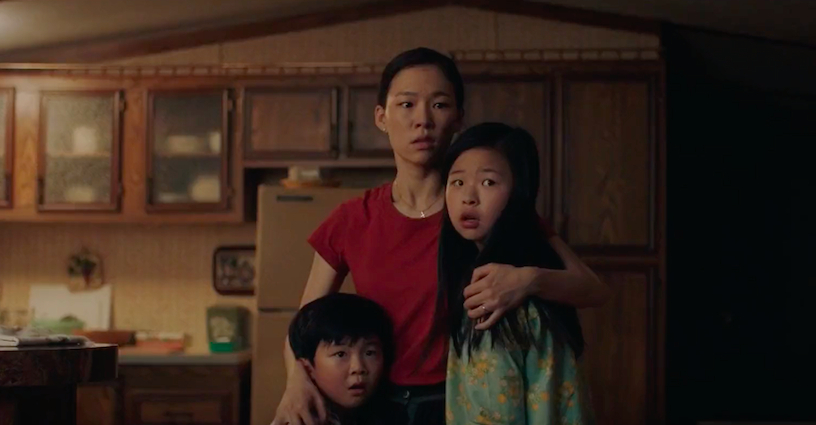
Many Asian women are so burdened by the responsibilities of their husbands and children that they forget what their dreams are.
The bitterness of marriage
Unlike the movieMarriage StoryPersistent and agonizing, marriage in Minari's life is simmering and haunting.
The beginning of love is passionate, connected, and involves constant communication. Monica and Jacob's relationship was once intense, but then things gradually fell into a lull.
Sharing gradually turned into private contemplation.
Monica is lost and miserable in a remote rural area in a foreign country – and even more so in her relationship with her husband. Jacob struggles to shoulder the responsibility.food, clothing, and money.taking the form ofoutsiderIn a foreign country. Although not explicitly stated, Monica's gaze and demeanor revealed concern about her husband's ambitions and the stability of their family.
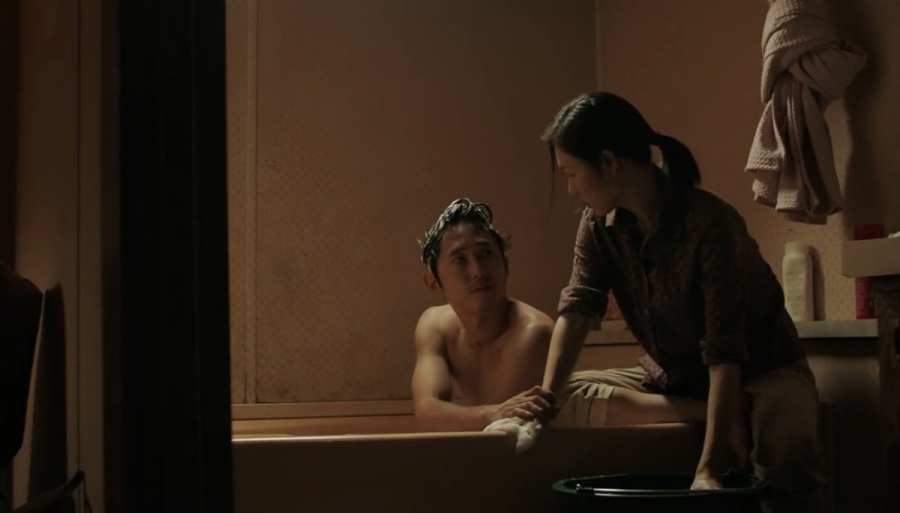
It's not feelings, but trust that is the core value in any relationship.
What's even more heartbreaking is when children have to witness their parents' conflict and suffering; they try to send a message.Don't fightIn despair. The details speak volumes about the fear and helplessness of children when faced with adult problems. Although it is not within their responsibility or understanding, it is still an event that leaves psychological scars on every child.
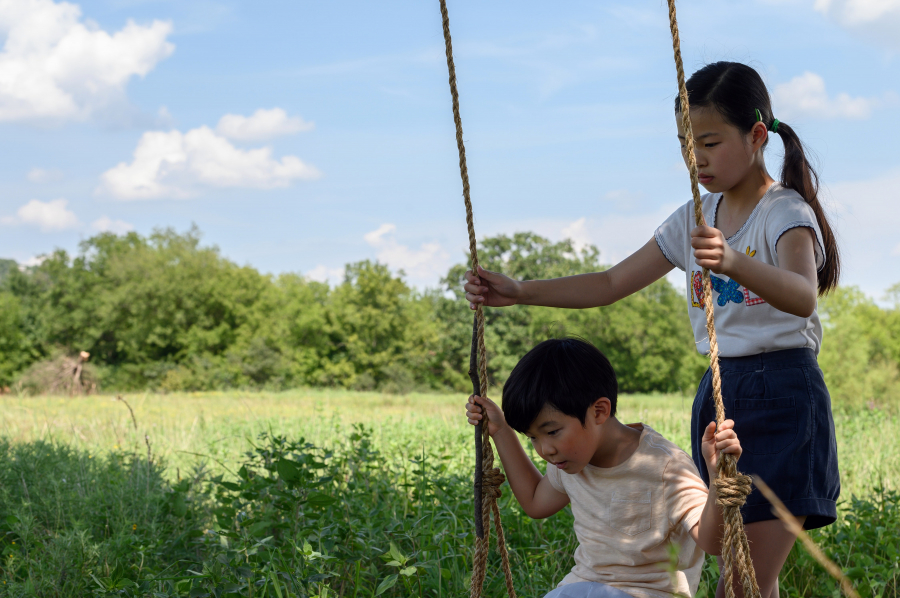
Children still have to endure and go through their parents' arguments even though it's not their fault.
In any relationship, instead of choosing to break up and fight, accepting and understanding each other and finding common ground is what's truly necessary; it's more important than anything else.other personal needsIt's about comforting, understanding, and supporting each other, rather than dumping all the pain on the other person; because everyone is hurt and needs healing.
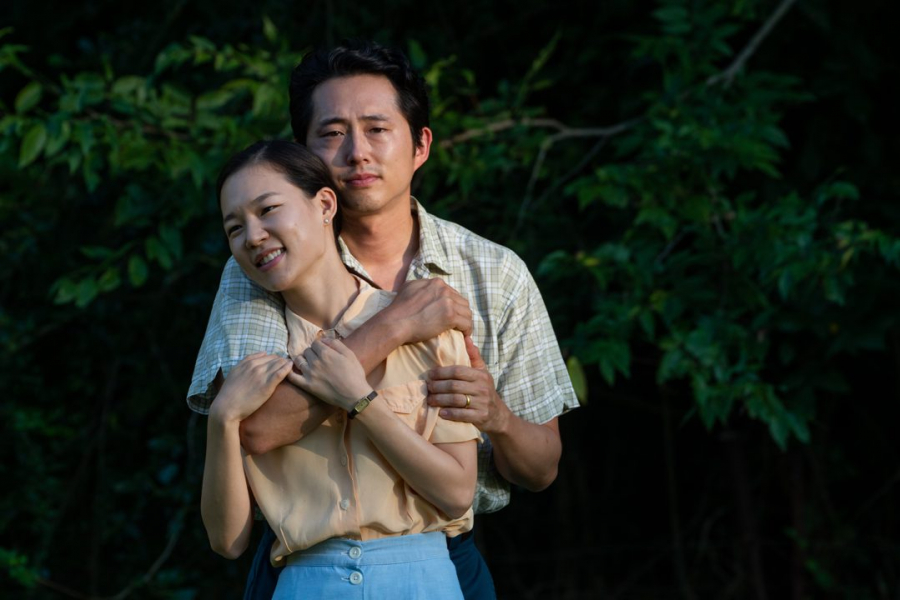
Everyone has their own problems; the important thing is to understand each other in order to find common ground.
The warmth comes from within each person.
Veteran actress Youn Yuh-jung fully deserves it.the 2021 Oscar statuetteMinari begins as a quiet story, almost like a whisper in the ear at times. However, the appearance of the grandmother, Soonja (Youn Yuh-jung), seems to breathe a bold and vibrant new life into the narrative. In the eyes of her grandchildren, Soonja isn't a "real grandmother" because she doesn't know how to cook, enjoys playing cards, and swears frequently, yet she has an unpleasant "grandmotherly" aura. In reality, not everyone has a kind and gentle grandmother like the stereotypical image.
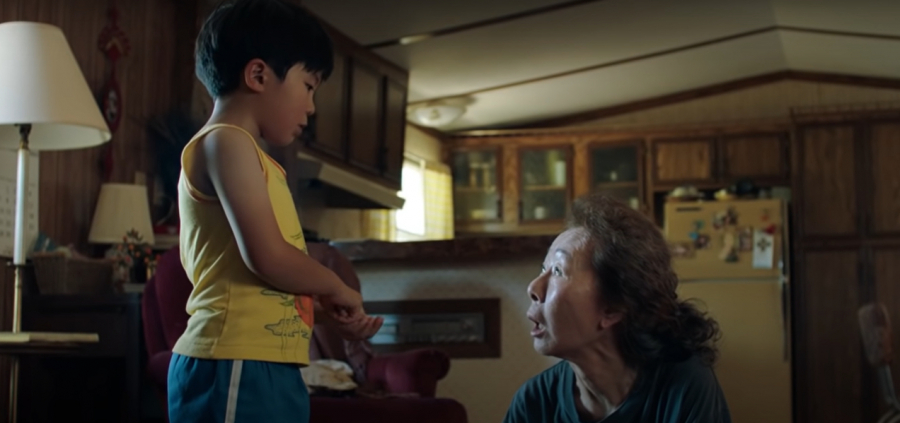
Because she lacks the qualities of a "classic" grandmother, Sooja is considered not to be a "real grandma."
Through these small but incredibly genuine details, in quiet moments, Sooja convincingly conveys the warmth of a grandmother's love and the affection of a family member. I cried at Sooja's hoarse, whispering voice as she lulled her grandson David to sleep; the sound transported me back to memories of being lulled to sleep by my mother and being patted on the back – memories that adult life had caused me to forget. Every rhythm and color in the film overwhelms the audience with emotion, making you want to scream, but then you have to hold back, silently. Perhaps that's why David connects with Sooja the most, not his parents; her straightforward yet simple nature gradually opens up the withdrawn grandson.
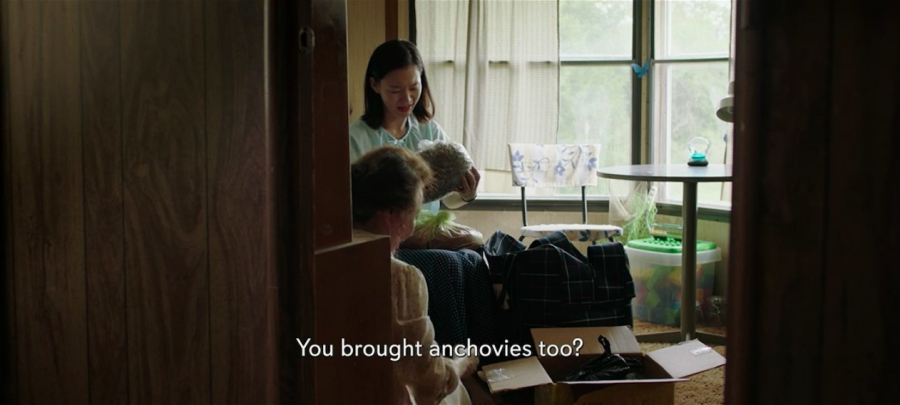
Audiences can sense the poignant nostalgia of a child far from home and their hometown through Monica, thanks to the simple things from her mother, Sooja. Ordinary flavors like chili powder, fish sauce, or the smell of home will evoke a deep, agonizing pain in those who are far from their homeland.
An interesting character who highlights Jacob's family's life in exile is their Western neighbor, Paul – considered eccentric and odd, but warmer and kinder than many others.dignityOut there. It's not ethnicity, culture, age, class, status, or wealth that defines a person's character. Warmth and kindness are everywhere, in everyone; it's just a matter of whether we choose to incorporate them into our actions.

Kindness is what truly reveals a person's character.
The harms stem from prejudice.
To becomea manThe responsibility of being the primary breadwinner for the entire family weighs heavily on Jacob's shoulders, as hinted at through various details.toxic masculinityWhen answering his son David's question about why the rooster chicks were burned:Their meat isn't tasty, and they can't lay eggs, so they're rarely used. Therefore, you and your father should try to be useful!That burden is deeply ingrained in the subconscious of men, from generation to generation; perhaps that is why Jacob's nature became so decisive and inconsiderate of outside opinions.
Jacob's conservatism is inversely proportional to Monica's voice; all family decisions are made by Jacob without consulting his wife. Conflicts, quite common in Asian families, are simmering resentments from both sides, escalating and leading to clashes – despite their pure and passionate love. If we could dismantle the prejudices within the family, even those about...real grandma,Each member will find it easier to share responsibilities, support, and heal one another.
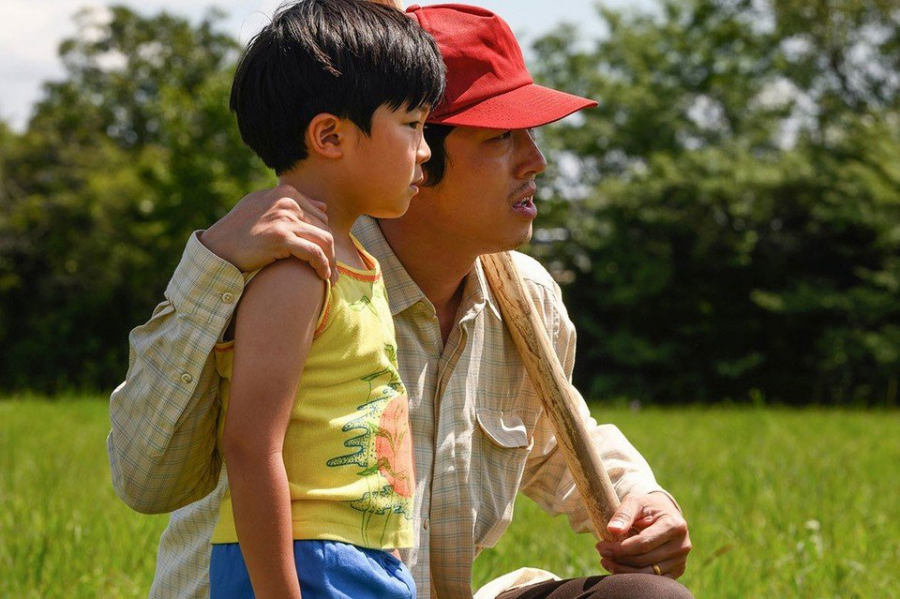
Jacob was obsessed with toxic masculinity and imposed it on his son.
Prejudice also leads to a long-standing and troubling problem -Racism.WayItThe narrative is subtly conveyed through the lens of Asian immigrants; Minari doesn't explicitly display outright discrimination, but it leaves viewers with a deeply unsettling and heart-wrenching feeling. This is especially relevant given the recent movement.#StopAsianHateThis prejudice is widespread in Western countries, where people of Asian descent are not truly treated equally (and are even more hated because of the idea that "Covid came from Asia!"). Even in Asian countries, white people living and working there often receive preferential treatment, respect, and a higher standard of living compared to the locals (with the same qualifications and abilities).

Actress Youn Yuh Jung was interviewed about what Brad Pitt "smells like".
Do all humans share a common origin?
Many studies show that the ancestors of modern humans, Homo Sapiens, originated in Africa. Sapiens migrated and spread across continents, with environmental factors in different places altering the evolutionary process (body type, skin color, eye color, etc.) (according to *Sapiens - A Brief History of Humankind*). Therefore, no race is inferior to another; this is "diversity." Prejudices deeply ingrained in culture and society have inadvertently harmed people. And those who are harmed, in turn, harm others.
Minari is a Way of Life
Sooja's grandmother said to her grandson David as she sowed the minari seeds:It grows everywhere, like a weed, so anyone can pick and eat it. Rich or poor, everyone can enjoy it, and it even helps keep us healthy…
Minari is a common vegetable in Korean cuisine. It typically dies in the first year after planting and thrives the following year. This vegetable also helps purify the surrounding water and soil, director Lee shared.Perhaps there is no more perfect comparison to this story of the American Dream.
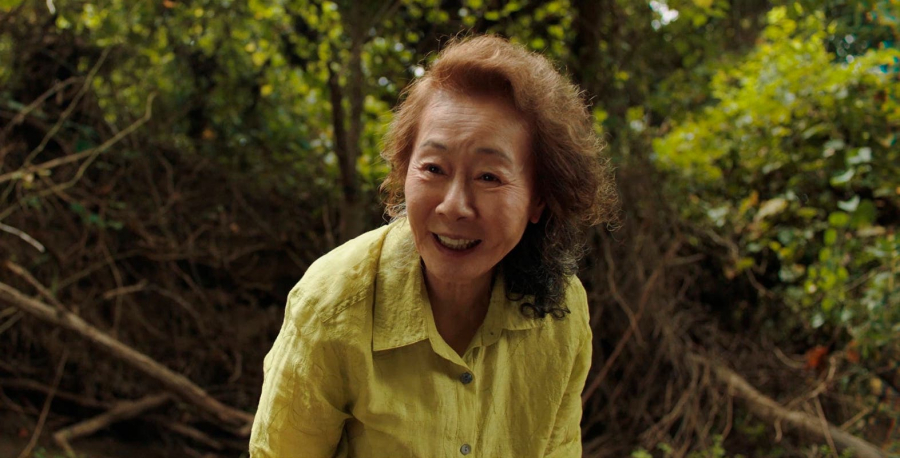
The film is a richly structured yet restrained story, captivating us with its gentle moments before overwhelming us with its final scenes. Lee Isaac Chung develops his characters slowly, allowing viewers to connect with them and skillfully imbuing them with genuine emotions they may not even be aware of. The film gently touches our hearts without resorting to gimmicks.
Sooja's final image in the film haunted many viewers. The ending was a perfect example of imperfection.
Perfectly imperfect!
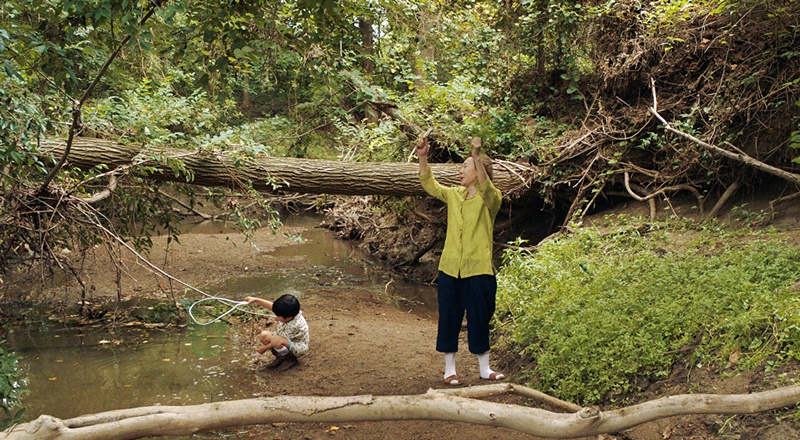
MINARI, MINARI, MINARI, WONDERFUL, WONDERFUL, MINARI...

 VI
VI EN
EN



